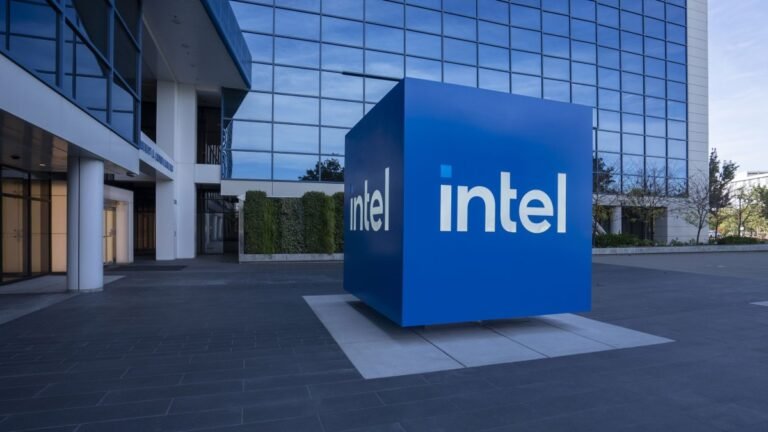
Social media company Snap said Tuesday that it plans to add watermarks to AI-generated images on its platform.
Other tech giants such as Microsoft, Meta, and Google have also taken steps to label or identify images created with AI-powered tools.
Currently, Snap allows users to create or edit AI-generated images with Snap AI for paid users and a selfie-focused feature called Dreams.
The company also added context cards with AI-generated images from tools like Dream selfies to better inform the user.
In February, Snap partnered with HackerOne to stress its AI image-generation tools by adapting a bug bounty program.

The Linux Foundation today announced the launch of the Open Platform for Enterprise AI (OPEA), a project to foster the development of open, multi-provider and composable (i.e.
modular) generative AI systems.
Now, OPEA’s members are very clearly invested (and self-interested, for that matter) in building tooling for enterprise generative AI.
Domino offers a suite of apps for building and auditing business-forward generative AI.
And VMWare — oriented toward the infrastructure side of enterprise AI — last August rolled out new “private AI” compute products.

It’s against this backdrop that Evolution Equity Partners, a growth capital investment firm based in NYC, on Tuesday launched a $1.1 billion cybersecurity and AI fund, the third such fund in Evolution’s history.
The fund, called Evolution Technology Fund III, was oversubscribed, with participation from existing and new endowments, sovereign investors, insurance companies, foundations, fund of funds, family offices and angels.
“The Evolution Technology Fund III has already backed fifteen leading cybersecurity companies, initiating its investment period over 12 months ago,” Seewald said.
“We believe that provides private markets investors with diversified exposure to cybersecurity opportunities.”ESG will be another factor, according to Seewald.
Evolution’s 30-person teams manages around $2 billion in assets and has backed 60 companies to date; its previous fund was $400 million.

The investor’s latest “Camp” incubator trained up and funded 9 AI agent startups they hope will take on today’s more tedious tasks.
The use cases for many of these companies sound promising, but AI tends to have trouble keeping its promises.
But are AI agents at that stage?
And it’s well within the capabilities of today’s AI agents, which would primarily be tasked with understanding natural language rather than forms.
A framework for web-based AI agents with a pay-as-you-go model so if your company’s experiment craters, you only owe a few bucks.

When prolific venture capital firms Andreessen Horowitz and Lerer Hippeau announced in early 2024 they were pivoting away from consumer tech, it sparked a social media debate about whether there are still opportunities.
Jumping in, Maven will be there helping to build the next game-changing health AI company or robotics AI consumer business, he said.
Scheinman started the firm in 2013 and brought in Deshpande soon after to focus on consumer AI and personalized medicine.
They brought in investment partner Robert Ravanshenas in 2015, and again in 2020 after a stint in a startup operating role, to focus on fintech, longevity and consumer AI.
Together the trio remains committed to seeding similar consumer tech trends, including applications of AI, personalized healthcare, climate and sustainability, family technology and fintech.

Spotify isn’t the only one to dabble with AI playlists — on Tuesday, Amazon announced it would do the same.
Amazon Music is now testing Maestro, an AI playlist generator, allowing U.S. customers on both iOS and Android to create playlists using spoken or written prompts, which can even contain emojis.
Amazon suggests that in addition to emojis, customers can write prompts that include activities, sounds, or emotions.
While Spotify’s AI generator is starting its tests in the U.K. and Australia, Amazon’s product is launching to a “subset” of free Amazon Music users, as well as Prime customers and Unlimited Amazon Music subscribers on iOS and Android in the U.S. for the time being.
To access Maestro, users will need the latest version of the Amazon Music mobile app and will tap on the option for Maestro on their home screen.

After considering a few ideas, they decided to go after what they saw as a largely unaddressed market: Tools to help small businesses secure U.S. government contracts.
“The federal contracting community has seen a shrinking of the small business industrial base for much of the past decade,” Doherty told TechCrunch.
It’s also expensive for them to bid on contracts — if they don’t win, they may run out of cash.”As a result of labyrinthine systems and mountains of paperwork, finding and bidding for U.S. federal contracts is a laborious process.
To attempt to give these small businesses a boost, Goltser, Mason and Doherty founded GovDash, a platform that provides workflows to support government contract capture, proposal, development and management processes.
New York-based, six-employee GovDash currently works with around 30 federal contractors across the U.S., Doherty said, and is “nearly” cash-flow positive.

ISAs are a technical spec at the foundation of every chip, describing how software controls the chip’s hardware.
In addition to building the chip, Rivos is working on self-contained data center hardware based on the Open Compute Project modular standard, which will effectively serve as plug-and-play chip housing.
Startups by the dozens, meanwhile, are angling for a slice of a custom data center chip market that could reach $10 billion this year and double by 2025.
Habana Labs, the Intel-owned AI chip company, laid off an estimated 10% of its workforce last year.
Kumar wouldn’t talk about customers, and Rivos’ chip isn’t anticipated to reach mass production until sometime next year.

The Oversight Board, Meta’s semi-independent policy council, it turning its attention to how the company’s social platforms are handling explicit, AI-generated images.
Tuesday, it announced investigations into two separate cases over how Instagram in India and Facebook in the U.S. handled AI-generated images of public figures after Meta’s systems fell short on detecting and responding to the explicit content.
In other words, after two reports, the explicit AI-generated image remained on Instagram.
The second case relates to Facebook, where a user posted an explicit, AI-generated image that resembled a U.S. public figure in a Group focusing on AI creations.
Meta’s response and the next stepsIn response to the Oversight Board’s cases, Meta said it took down both pieces of content.

As the Gulf region gains growing strategic importance for the tech war between the U.S. and China, Microsoft makes a big move into one of its richest oil countries.
The minority stake will give Brad Smith, Microsoft’s vice chair and president, a seat on G42’s board of directors.
The funding comes amid U.S. politicians’ escalating concerns over G42’s ties with China.
Given the two countries’ increasing economic ties, it’s no surprise that G42, the AI poster child of the UAE, has also forged ties with Chinese firms.
Under the agreement, the Emirati company’s data platform and other key technology infrastructure will migrate to Microsoft Azure, which will power G42’s AI product development.













